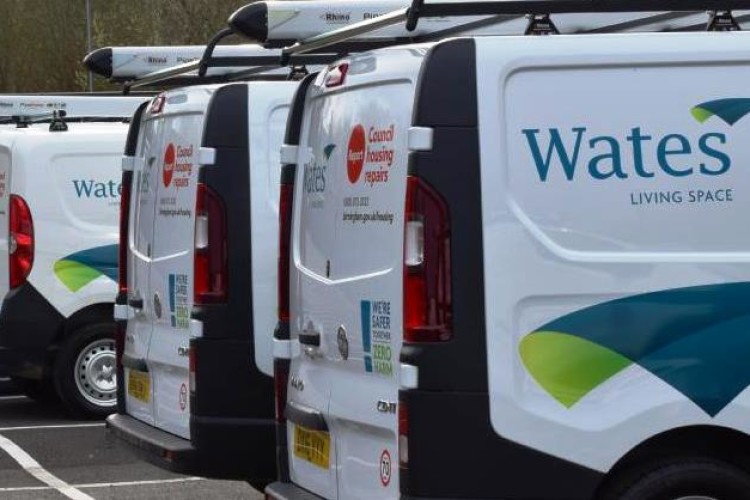

The property maintenance group is all set to replace its commercial van fleet with electric cars
September 14, 2023 | Staff Reporter | UK | Facilities Management

Building and property maintenance company, Wates, has accelerated plans to decarbonise its commercial van fleet with a major investment to replace 45 small diesel, supervisor vans with new electric cars, which will be used across the group’s UK-wide fit-out, refurbishment and maintenance services for social housing properties and non-domestic buildings.
Forming part of a long-term plan to electrify its full fleet of commercial vehicles, the investment will be followed by a further 45 electric vehicles in 2024 with a target to electrify 100 per cent of Wates’ supervisor vehicles by the end of 2025.
Decarbonising its service vans forms part of Wates’ Environmental Sustainability Plan and moves the Group closer to its target of becoming carbon neutral in its Group-wide operations by 2025 for its Scope 1 and 2 emissions. David Morgan, Executive Managing Director of Wates Property Services, commented, “In 2021, we introduced the first electric vehicles to our service van fleet, which was an important step in reducing our carbon footprint. We are now making great strides across the group, both in terms of our own operations and the work we are doing on behalf of our customers to decarbonise their buildings.”
Bekir Andrews, Environmental Sustainability Director of Wates Group, added, “Replacing the vans is an important milestone and one of many more to come in reducing our direct carbon emissions as well as helping do our bit to improve local air quality. We have been trialling different electrically powered vans for our operatives and have already started replacing diesel vans where vehicle range and charging infrastructure allow. For our wider company car fleet, we have already introduced measures to phase out combustion engines. We are collaborating with our supply chain partners, customers and industry to meet our near-term science-based targets and progress towards net zero by 2045.”